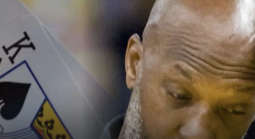Judge Rules Taking Bets From Grey Market No Big Deal
New York federal district court judge Paul A. Engelmayer has ruled that it is fine for an online sportsbook to take bets from so-called "grey areas" just as long as the business discloses they did so and that information is accurate.
Leading attorney in the gaming space, I. Nelson Rose notes: "This is the startling decision of New York federal district court judge Paul A. Engelmayer: "'disclosing the fact of operations in Asia,' 'did nothing more than’ accurately ‘characterize statistical facts.’”
The ruling was made back in January. For the first time, Rose has offered his interpretation.
"I have taught International Gaming Law as a Visiting Professor at the University of Macau almost every summer since 2007, and often act as a consultant and expert witness for governments and industry. But you don’t have to be a Law Professor to know that gambling, especially internet sports betting, is illegal in almost every jurisdiction in Asia."
Judge Engelmayer ruled this does not matter.
The ruling is that "a company reporting hundreds of millions of dollars in wagers from Asia did not oblige it to address different subjects: the particular jurisdictions in which that revenue was earned, or the allocation of that revenue to non-black-market, versus black-market, jurisdictions.”
A black market means the activity is considered illegal in that particular jurisdiction (i.e. the Asian nation).
But, again, Judge Engelmayer: “No actionable omission where financial reporting was accurate, even where it did not disclose revenue sources relating to uncharged criminal conduct.”
The case in question applied to a class action against DraftKings and its acquisition of SBTech (Global) Limited while going public.
While DraftKings is not alleged to have operated in a so-called black market, SBTech was. The complaint alleges SBTech “had secretly operated in ‘black-market’ jurisdictions — that is, ones in which gambling was illegal.”
Plaintiffs argued that DraftKings’s shares traded at artificially inflated prices until June 15, 2021, when a short seller, Hindenburg Research published a report that revealed SBTech’s ostensible operations in black market jurisdictions and the risks to which the merger with SBTech allegedly exposed DraftKings. That day, DraftKings’s shares fell 4.17%.
It is important to point out that both DraftKings and SBTech denied these allegations.
Judge Engelmayer based his decision not on gambling law, but rather on securities laws, as the defendants were being accused of security fraud.
The defendants had been under no obligation “to identify its alleged operations in black-market jurisdictions" based on the judge's ruling. He ruled that under securities law, there is “no duty to disclose” such information “merely because a reasonable investor would very much like to know” such information.
Rose offered this review of the ruling: "The decision raises an interesting question of whether there is actually this great a difference between securities laws and gambling laws. No regulator or judge would dismiss allegations of criminal gambling operations like these if a company were seeking a gambling license. At the very least, a licensed sports book would have to explain where it took online bets and whether those bets were legal. It couldn’t just say, 'Asia'."
Rose explains further: "Securities fraud requires 'scienter,' basically meaning the defendants had bad motives. This 'can be established with allegations that a defendant made unusual insider sales at a time when he withheld material information from the investing public'.
"Here, one of the defendants sold $601 million in stock. Or maybe I should say 'only' $601 million. Because Judge Engelmayer ruled that that insider’s profits did not sufficiently allege scienter, because the defendant could have sold even more!
"And anyway, the numbers were accurate."
- Frank Doyle, Gambling911.com















